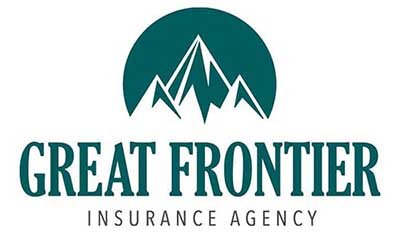Frequently Asked Questions About Boat Insurance
Have questions about boat insurance? Find answers to commonly asked questions about boat insurance in Colorado. Learn about coverage options, requirements, costs, and what is covered or not covered. Get informed and make confident decisions to protect your boat and enjoy smooth sailing on the water.
-
The cost of boat insurance can vary depending on several factors, including the type of boat, its value, the coverage options chosen, your boating experience, and your location. Insurance companies consider these factors when determining the premium for your boat insurance policy. It is best to request quotes from different insurance providers to get an idea of the cost. Save time and money by enlisting the help of an experienced insurance broker! This is a free service and there is no obligation.
Check out this free insurance calculator to get instant estimates.
-
Boat insurance is generally not legally required in Colorado. However, some marinas and lenders may require boat owners to carry insurance as a condition for docking or financing. Additionally, while not mandatory, it's highly recommended to have boat insurance to protect yourself financially in case of accidents, damage, theft, or liability claims.
-
Boat insurance policies typically provide coverage for a variety of risks, which may include:
Physical damage: This covers repairs or replacement if your boat is damaged due to accidents, storms, fire, theft, or vandalism.
Liability: It provides coverage if you cause bodily injury or property damage to others while operating your boat, including legal expenses if you're sued.
Medical payments: This covers medical expenses for you, your passengers, or other individuals injured on your boat.
Uninsured/underinsured boater coverage: It protects you if you're involved in an accident with another boater who has insufficient or no insurance.
Personal property: This covers loss or damage to personal items on your boat, such as equipment, fishing gear, and electronics.
Towing and emergency assistance: It may provide coverage for towing, fuel delivery, and other emergency services.
-
While boat insurance policies vary, there are certain common exclusions and limitations. These may include:
Normal wear and tear of the boat and its parts.
Damage resulting from improper maintenance or lack of upkeep.
Damage caused by marine life, such as zebra mussels or termites.
Damage from war, nuclear hazards, or intentional acts.
Use of the boat for illegal activities.
Personal belongings not specifically covered under personal property coverage.
Always review the specific policy language and exclusions to understand what is covered and what is not.
-
In Colorado, boat trailers are typically covered under your auto insurance policy rather than a boat insurance policy. Liability coverage from your auto insurance may extend to your boat trailer while it is being towed, but it's important to verify this with your insurance provider. If you want additional coverage for your boat trailer, such as comprehensive or collision coverage, you may need to consider adding a separate endorsement to your auto policy.
-
Your car insurance policy may provide coverage for towing a boat, but this can vary depending on the specifics of your policy. Some auto insurance policies include towing coverage as part of their comprehensive or roadside assistance package. Need help understanding your coverage? Contact Great Frontier now and we can review your current policy.
-
Yes, boat insurance policies typically cover the boat's motor if the motor is damaged due to covered perils like accidents, theft, or fire.
-
Boat insurance policies typically provide coverage for sinking if it occurs due to a covered peril specified in the policy. Covered perils often include accidents, storms, collisions, or unexpected events. However, it's important to review the policy language and any exclusions to understand the specific circumstances under which sinking is covered.
-
When renting a boat, it is highly recommended to have insurance coverage, although requirements can vary depending on the rental company and location. Some boat rental companies may offer insurance options as part of the rental agreement, while others may require proof of your own insurance coverage. It's important to review the terms and conditions of the rental agreement and consult with the rental company to understand their insurance requirements. Having insurance can help protect you financially in case of accidents, damage, or liability claims while operating the rented boat.
Disclaimer: The information provided above is for general informational purposes only and may not reflect the specific terms and conditions of your insurance policy. Insurance policies can vary, and it is important to review your policy and consult with your insurance provider to understand the exact coverage and limitations regarding business use of your vehicle.
Need more help? Contact us and we can help you review your current policy.
